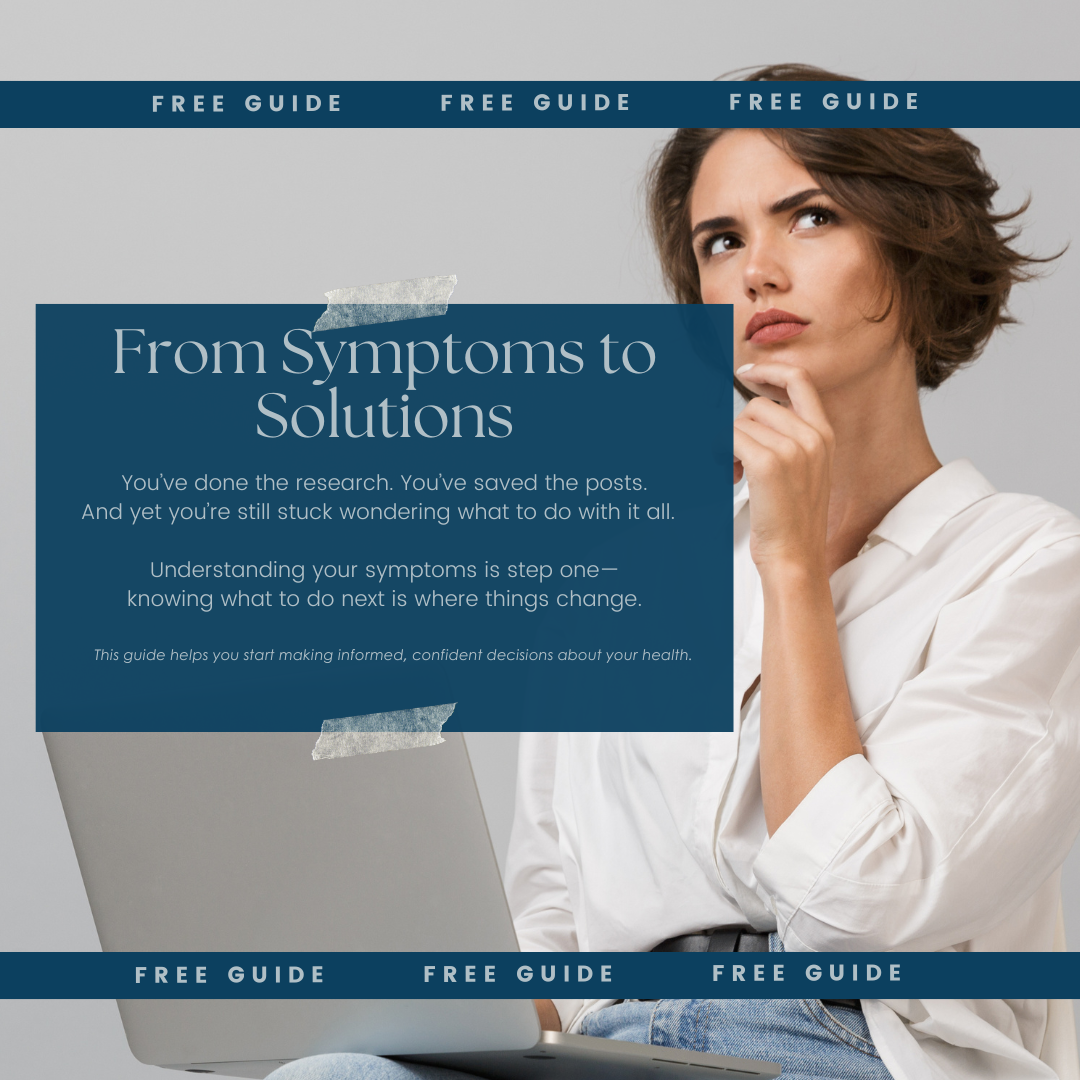Diet and Thyroid Health
Jun 28, 2023
Thyroid problems can cause several issues throughout the body. These include changes to your weight, energy, digestion, and mood.
These changes are all linked to the thyroid because it directs important processes that happen throughout the body.
Thyroid hormones help control your metabolism. When the levels are too low, metabolism slows down. Symptoms can include feeling chilly, fatigued, getting constipated, feeling down, and gaining weight. Low levels of thyroid hormone is called hypothyroidism.
There are some important foods and nutrients that can help you feel better. By providing your body with proper nutrition—along with prescribed medications—you can help reduce your symptoms.
Before we dive into nutrition tips, let’s start by understanding the thyroid and why it’s so important for your body and mind.
What does your thyroid do?
The thyroid, a butterfly-shaped gland in the neck, produces hormones that regulate metabolism and affect various bodily processes such as breathing, heart rate, body temperature, and brain function.
Hypothyroidism, characterized by low thyroid hormone levels, is common, affecting approximately 1 in 20 Americans aged 12 or older. It is most often caused by Hashimoto's disease, an autoimmune condition where the body's immune system attacks its own cells.
Other causes of hypothyroidism include inflammation, iodine deficiency, certain medications, diseases, or congenital factors.
Here are a few symptoms related to hypothyroidism:
● Fatigue and weakness (feeling unusually tired, having less energy)
● Weight gain
● Trouble tolerating cold (feeling chilly when others around you feel fine)
● Depression, difficulty concentrating, memory problems
● Joint and muscle pain
● Constipation
● Puffy face
● Dry or thinning skin, hair, and nails
● Heavy or irregular menstrual problems or fertility problems
● Slow heart rate
These symptoms can vary from person to person, and may have causes other than low thyroid. Hypothyroidism develops gradually over time, so it’s possible not to notice symptoms for months or even years.
Blood tests can confirm whether thyroid hormone levels are too low. If you’re experiencing symptoms, it’s important to ask your healthcare provider to see if you should be tested. Left untreated, hypothyroidism increases the risks of high cholesterol, high blood pressure, and heart disease.
The standard treatment for an underactive thyroid is a medication that replaces the hormones your thyroid can no longer make. Once you and your doctor find the right dose, many symptoms may improve dramatically.
Weight gain is just one of many symptoms. The thyroid helps to control metabolism, so it can directly impact your weight. With hypothyroidism, the body isn’t metabolizing (using energy) as well as it could be. This means that more of the foods and drinks we consume aren’t metabolized (“used” or “burned”). This can lead to some weight gain.
A thyroid-healthy diet includes:
● Fruits, vegetables, nuts, and seeds (these contain essential vitamins and minerals and are also sources of dietary fiber for digestive health)
● Lean protein such as eggs, poultry, lean meats, legumes (with their fiber), and fish and shellfish (with their omega-3s for heart and brain health)
● Whole grains (avoid gluten-containing grains if you have celiac disease)
● Heart-healthy oils like olive oil (with its unsaturated fats)
Cut down on processed foods—especially those that contain hydrogenated oils and excess sodium and sugar. Minimize soft drinks, potato chips, candy, etc. that are high in calories and low in nutrients.
For thyroid health, nutrition is important. Knowing what to eat when your metabolism is slow can help you feel better and reduce your symptoms. It’s also important to know what foods and drinks to avoid in the few hours before and after taking your medications.
If you feel that you have symptoms that may be related to thyroid issues, speak with a healthcare provider. They will review your history, symptoms and help you decide if you need testing or treatment. Never stop taking your medications without speaking with your doctor or pharmacist first.
Need nutrition support for your thyroid? Book an appointment with me to see how working together can help you feel your best again! BOOK NOW
Looking for healthy recipes to boost your thyroid health?? Check out these recipe and resource bundles: click HERE
Stay connected with news and updates!
Join our mailing list to receive the latest news and updates from our team.
Don't worry, your information will not be shared.
We hate SPAM. We will never sell your information, for any reason.


